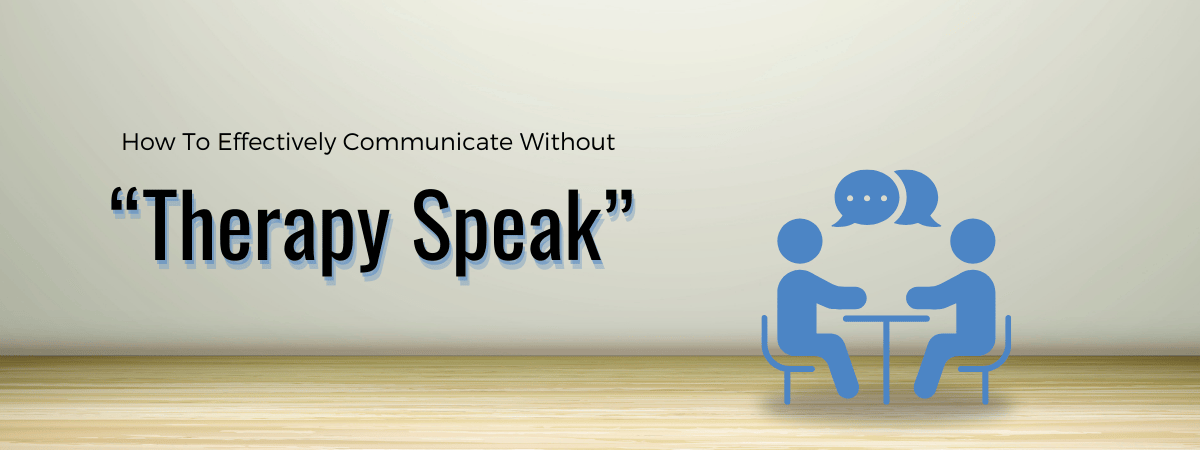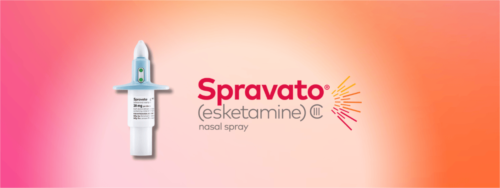

Why You Need To Stay Away From Therapy Speak In Regular Conversations
There’s been a greater focus on mental health in recent times, moving once-taboo topics into the public domain. While this development is praiseworthy, it has also begun a complication that can hinder genuine discussions: "therapy speak."
This kind of dialogue is misunderstood, overused, and taken past its original intent by untrained individuals in daily situations and on social media platforms like Instagram, TikTok, and more. Find out more about what what therapy speak consists of, how it affects people, and get tips on communicating about mental health support more effectively.
What Is Therapy Speak?
Therapy speak refers to utilizing psychological terms, often borrowed from counseling sessions, in regular discourse. Some expressions have moved out of professional medical contexts and become widespread in social media posts, headlines, and, sadly, intense arguments between loved ones.
When these terms are misconstrued in general conversation, they can become a way to escape more meaningful dialogue and detrimentally oversimplify complex emotions. What could be meaningful conversations often end abruptly with lasting negative implications, as those with no experience or authority might inaccurately diagnose themselves or others they care about.
Here are several cases of therapy speak:
- “I’m setting a boundary,”
- “That’s triggering for me,”
- “Are you doing the work?”
- “Is it a safe space?”
- “Maybe you’re processing your trauma.”
While these terms can be valuable within a therapeutic context at a credentialed facility like The Counseling Center, they are frequently out of place in daily life.
Therapy Speak Can Diminish Genuine Conversation
At TCC, we support the integration of mental health practices into daily life. Even so, we also acknowledge the potential drawbacks of utilizing clinical or technical language in daily life. Engaging in therapy speak can diminish the actual intent of discussions, creating barriers instead of cultivating connection and understanding. We find people frequently utilize therapy speak as a shield.
There could be a feeling that therapy speak can’t be challenged because it reflects what you may experience at a treatment facility. Yet proper conversation relies on active listening, mutual understanding, and empathy.
The Affect of Therapy Speak
1. Diminishing Genuine Connections
Overusing therapy speak can make interactions feel clinical or impersonal, eroding the personal warmth that fosters real connection. It might “therapize” family relationships, converting worthwhile heart-to-heart dialogue into what may sound like a 20-second reel produced by a mental health provider on TikTok.
To illustrate, exclaiming to someone close to you, “I have to hold space for myself right now,” may feel cold and standoffish compared to merely verbalizing, “I’m feeling stressed and need a bit of time to think.”
2. Improper Use and Misunderstanding
Therapeutic terms have specific meanings within professional contexts. Misusing phrases like ”narcissistic” or “bipolar” not only diminishes their true meaning but might also perpetuate stigma around mental health diagnoses. Some seek to label others instead of listening and allowing time for authentic dialogue.
The Counseling Center welcomes carefully considered language that values the significance of words employed in clinical settings, with the intent that they are not misused or diminished in daily conversations. We’ve found that therapy speak frequently fosters confusion, with many phrases employed improperly. This language may act as a shield to guard us from guilt, obligation, or judgment.
3. Evading Accountability
Even though concepts like self-care and setting boundaries are vital, therapy speak can sometimes be misemployed to avoid accountability or redirect responsibility. For example, declaring, “I’m protecting my boundaries,” to justify unhealthy behavior can take away from the trust and honesty necessary in strong relationships. There are always new phrases to excuse self-serving or even hostile behaviors. The word “boundaries” has become specifically galling to professional therapists.
Therapeutic expressions are now used when people just don’t want to do something. In light of all the arguments that result, you might question whether your “boundary” is more important than your relationship.
How to Effectively Communicate Without Therapy Speak
We believe worthwhile conversation doesn’t require complicated terminology. Really, it’s about being authentic, direct, and kind. Our counselors have a few other practical tips to help:
1. Express Yourself From the Heart
Focus on how you feel in lieu of depending on buzzwords when communicating emotions. For example:
- As opposed to: “You’re gaslighting me.”
- Try: “When you say that, it makes me feel like my perspective isn’t being acknowledged.”
2. Put An Emphasis On Understanding
Try to listen actively in lieu of labeling behavior. Phrases like “Help me see where you’re coming from” promote productive communication.
3. Be Conscious of Your Audience
Keep in mind that not every individual is familiar with clinical terms. Utilizing plain, relatable language helps get your message across more effectively.
4. Use Boundaries Carefully
Boundaries are critical, but they need to be conveyed with care. Rather than: “I’m setting a boundary.” Try: “I have to step away from this conversation for now so I can think clearly.”
Therapy gives you strategies, not jargon-heavy scripts. Counselors at TCC routinely evaluate how you’re using what you’ve learned to confirm it improves, rather than detracts from, your relationships.
How The Counseling Center Promotes Improved Communication
At The Counseling Center, we strive to equip individuals with the tools they need to handle their mental health condition while fostering more positive relationships. Our offerings include:
- Individual Therapy: Personalized sessions to develop self-awareness and enhance emotional intelligence.
- Family and Couples Therapy: Helping partners and family members connect more beneficially and address disputes peacefully.
- Group Therapy: Providing a safe space for genuine communication in a supportive environment. Our counselors promote practical, real-life applications of therapeutic concepts, ensuring you can engage meaningfully with others without depending on jargon.
Get Skilled Mental Health Support Today
If you’re motivated to deepen your self-awareness and bolster your relationships, we’re standing by to help. Learn more about our intensive outpatient and outpatient services. If you require help right away, please call our 24/7 hotline at 833-248-6271. Working together, we can enable you to communicate with clarity, empathy, and purpose—without compromising the essence of who you are.



